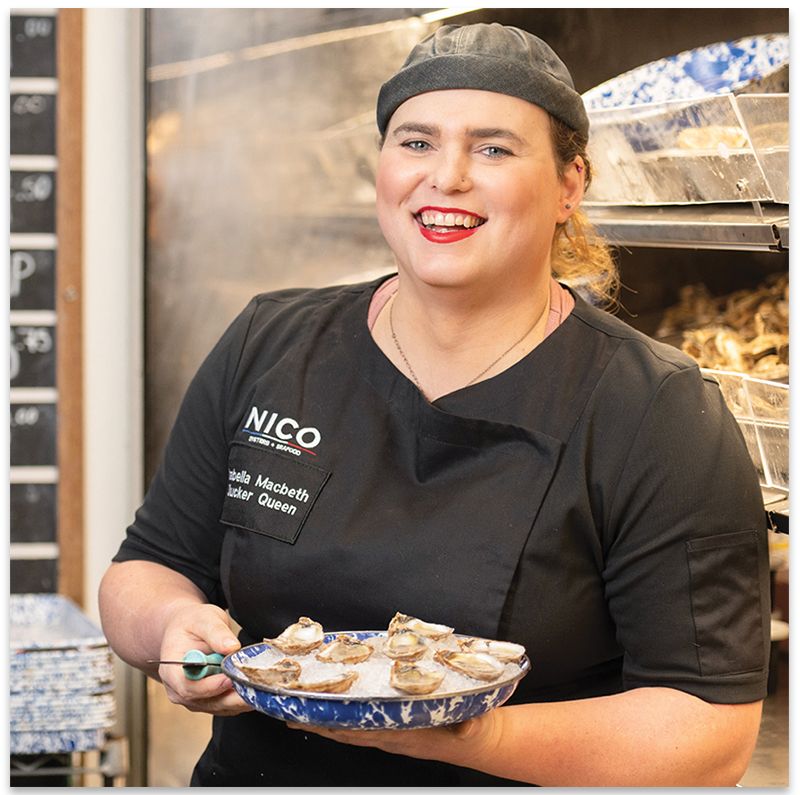The Charleston native regularly competes against pro shuckers from across the country

CM: Do you remember shucking your first oyster?
IM: I was five years old at an oyster roast with my family, and I remember trying to pull the clusters off with my hands. My mom handed me a glove and knife and taught me how to do it safely. I’ve always seemed to be really good at it.
CM: How did you get into F&B?
IM: The recession hit as I was finishing college so it wasn’t easy to find a job. My uncle opened Amen Street Fish and Raw Bar around that time so I started shucking there but didn’t see it as a career path at that point. I then worked in the hotel industry for a few years and was quite successful, but lost my job when I started to transition. I knew and loved oysters and still had a mortgage to pay, and it turned out nobody cared who I was behind a raw bar as long as I did a good job. I put all my focus into being the best and that would eventually include going up against some of the best shuckers in the country.
CM: How does it feel to be coming up on four years at Nico?
IM: When I came to the restaurant, it took a year before chef Nico Romo got to know me well enough to hand over control of his raw bar, the crown jewel. Since then, it’s been a match made in heaven. We only disagree on one thing: he insists that we don’t remove the adductor muscle from the oyster, which is a French thing. People would worry that if they bought an oyster with that muscle cut the restaurant could sneak cheaper meat into nicer shells. Of course, we shuck them in front of you, so there’s no worry there!
CM: What motivated you to start competing in oyster-shucking contests?
IM: People kept connecting with me at the raw bar and asking if I competed. In 2016, I won my first competition, the Lowcountry Oyster Fest, and started going to contests across the country. Right now, I’m averaging about five to six competitions a year and am always trying to find new ones. Competing helped me advance my career but also pulled me out of my shell. Initially, I wanted to hide as a trans person. Now, I love getting up on the stage.
CM: In October you came in first in the Women’s Division at the US National Shucking Championship for the second year in a row. Tell us about it.
IM: In my seven years of entering, I’ve been the only one from South Carolina, so I love representing the Lowcountry culinary industry. It’s held in St. Mary’s County, Maryland, and each year there’s anywhere from 40 to 60 shuckers competing. The pro shucking community is like a big family, so there’s sibling rivalries and bickering. As competitive as we get though, we still come off the stage and have drinks with each other.
CM: What sort of strategies do you use while competing?
IM: It’s always a gamble. Do you go for all-out speed and hope for clean shucking? Or do you take the time to slow down and try to get the perfect tray? I never know what my strategy will be until I get up on the stage and see what kind of oysters I’m working with. My favorites are from the Gulf Coast because the hinge is easier to work, so I know I can plan for more speed. Blue Point oysters are the worst; they have very brittle shells and shatter easily for penalties galore